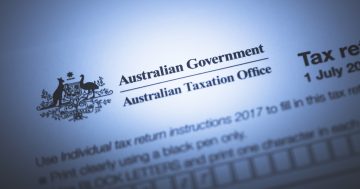Allie Volpe* details research which indicates that wealth tends to erode empathy and the social graces.
 Money, much like love and food, inspires many of our thoughts, actions, and emotions.
Money, much like love and food, inspires many of our thoughts, actions, and emotions.
How do I get more of it? What should I do with it once I have it? What will happen if I don’t have enough of it?
Often, the way we think about our money is rooted more in emotion than rational decision-making.
The thrill of spending outweighs the pragmatism of saving; the self-preservation of acquiring wealth supersedes the pull of philanthropy.
Debt is exhausting and anxiety-inducing.
Financial planner, Carl Richards wrote: “We feel better when we have cash on hand. It doesn’t matter if it’s rational. It’s true.”
The accumulation of wealth and money scarcity is highly emotional, having either a lot or a little of it impacts our personal choices and the way we treat others.
Wealth impacts empathy.
The richer you are, the less you may be able to read others’ emotions, according to a 2010 study.
Participants viewed images of facial expressions and were asked to explain which emotions were expressed.
Richer participants were less able to accurately discern emotions.
The study found that people of lower economic status were more socially empathetic because they “live lives defined by threat. They are threatened by the environment, by institutions, and by other people.”
“One of the most adaptive strategies in response to threat is to be very vigilant and carefully attend to others and try to promote cooperation to build strong alliances.”
Wealthier people are usually higher up in the power structure, so they don’t need to read the emotions of a boss, for example.
Wealth creates social distance.
Another study found that people with lower socioeconomic status were more generous, charitable, trusting and helpful than their richer counterparts.
Christopher Ryan in his book, Civilized to Death: The Price of Progress, says it’s not so much that being rich makes you less generous.
“Instead, the social distance wealth creates — the difference between the haves and the have nots — breeds selfish behaviour.”
Researchers found that rich people were more generous if they lived in an area where wealth was distributed evenly.
Mr Ryan writes: “If the person who needs help doesn’t seem that different from us, we’ll probably help them out.”
“If they seem too far away (culturally, economically) we’re less likely to lend a hand.”
The us-versus-them mentality applies to physical space, too.
Mr Ryan points out how money affords certain comforts — fancy hotel rooms in lieu of hostels, cars over public transit.
This creates physical distance between those who can afford isolating luxuries and those who can’t.
“We use money to insulate ourselves from the risk, noise, inconvenience,” Mr Ryan said.
Money can trigger unethical behaviour.
More money can equal more problems.
According to research from 2012, upper-class individuals were more likely to break the law while driving.
They were more likely to take valued goods from others, lie in a negotiation, cheat to increase their chances of winning a prize, and endorse unethical behaviour at work than lower-class folks.
“While having money doesn’t necessarily make anybody anything, the rich are way more likely to prioritise their self-interests above the interests of other people,” Mr Ryan said.
Researcher, Paul Fiff summed it up when he said: “The rich are more likely to exhibit characteristics that we would stereotypically associate with, say, assholes.”
Even thinking about money can inspire shaky behaviour.
In 2013, researchers exposed a group of study participants to words about money, while a control group received neutral words.
Those who saw the money lingo were more likely to lie if they knew it would make them more money and were more prone to act unethically.
Poverty taxes the mind.
Constantly worrying about money erodes mental bandwidth, and that can have an effect on our behaviour, too.
In a 2013 study, researchers asked participants to consider the financial blow of potentially having to spend $3,000 on car repairs.
They then gave them an IQ test.
Just thinking about financial constraints caused poor participants’ test scores to drop 13 IQ points.
Constantly balancing the budget takes an extreme mental toll, and this can lead to poor decisions.
If an abundance of money can lead to shaky behaviour, a lack of it can, too, albeit for other reasons.
Ultimately, our circumstances may play a larger role in our actions than perhaps we previously believed.
Regardless of our financial situation, money can fuel our reactions and behaviour — all in the effort of self-preservation.
*Allie Volpe is a freelance writer. She can be contacted at [email protected]
A fuller version of this article appeared on the Financial Diet website.











